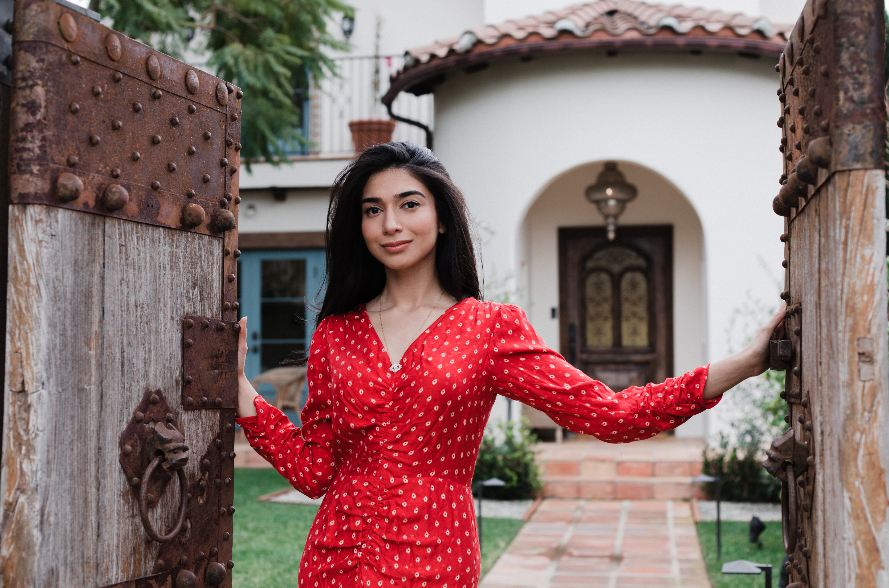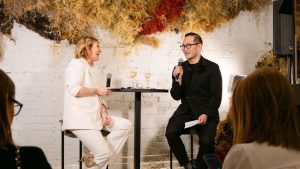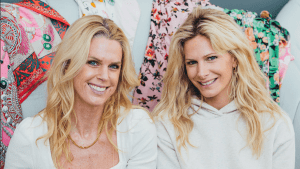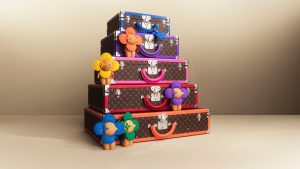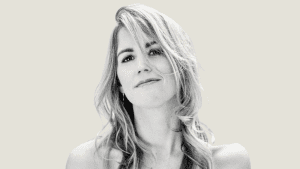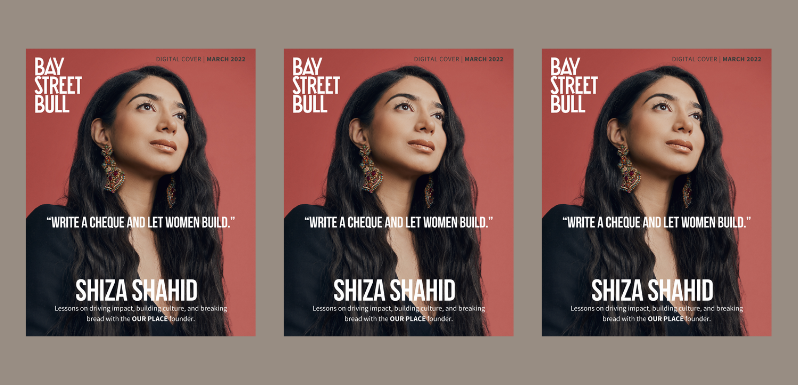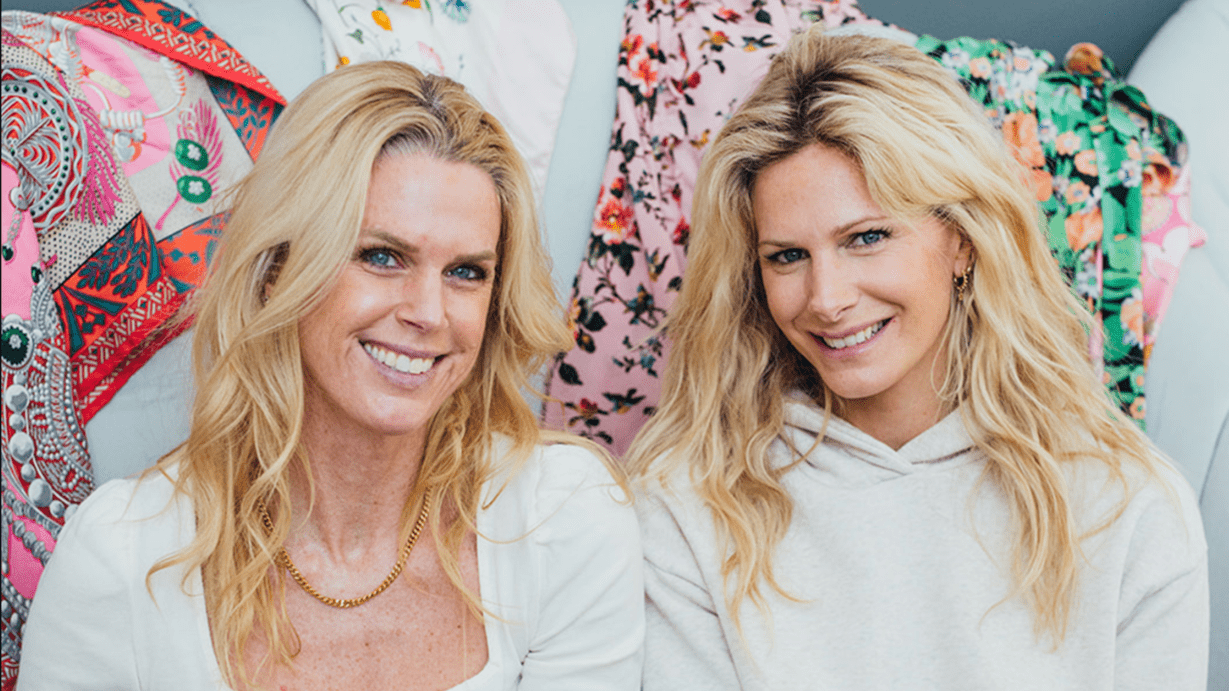You’ve seen them everywhere—the insta-friendly array of kitchenware pans that seem to solve the culinary conundrums that home cooks battle every evening (spatula rests! Dripping lids!) But beyond a beautiful kitchen tool, Our Place has a bigger picture in mind. Shiza Shahid, the co-founder behind the LA-based kitchen startup, has a track record of cultivating businesses with purpose. After all, she’s the co-founder of the Malala Fund and NOW Ventures, an investment company she launched to support mission-driven startups. Her latest venture, Our Place, serves as a vessel for breaking bread and fostering an inclusive community for the modern multiethnic kitchen.
In our October digital cover feature, Shahid discusses how (and why) she built Our Place, her favourite food memory, and why businesses must stand up for their values.
Media error: Format(s) not supported or source(s) not found
Download File: https://baystbull.com/wp-content/uploads/2020/10/Shiza-Shahid-Our-Place-Bay-Street-Bull-Cover.mp4?_=1What is Our Place?
Our Place is a mission-driven business re-imagining kitchenware for the modern multiethnic kitchen. My journey to Our Place comes very much from my own experience. I’m an immigrant. I moved to the United States when I was 18 and grew up in Pakistan, and my husband is also an immigrant from Iran. We literally found our place in America by cooking and sharing food. We would have friends come over and argue over whether Pakistani or Iranian food is better, and I think we realized that there’s something really incredible about the power of home cooking to bring people together. When you cook with someone, when you sit down across the table and share a meal with someone, the superficial differences start to melt away and the deep-rooted similarities start to immediately become apparent.
Our Place also came from a sense that existing cookware and kitchenware were badly designed and lacked innovation. If you walk into any cookware store, they’re all selling the same thing—a 16-piece cookware set. And ultimately, what’s the difference between a skillet and a saucepan? A little bit of depth and roundness? Why can’t you create a product that does most of this stuff? So, the Always Pan, which is one of our best-selling items, is really intended to replace eight traditional pieces of cookware.
Why is home cooking so special?
Home cooking is this place where love, identity, culture, and connections live. When all else falls away, we’re still cooking the way our grandmothers used to. If you come into my home, you don’t just know who I am, you know who my grandmother was. And so I think home cooking is this place that is deeply personal, political, cultural, and familial. As we looked at the culinary and kitchen space, it was lacking depth and representation. It was this consistent worship of French and Italian food with a lack of awareness that any other cuisine even really existed outside of the “ethnic” bucket. We felt that there was just so much interesting content and conversations that were being completely ignored. So we thought of building a brand that really celebrates food culture and traditions because it’s interesting, meaningful, and real.
Your website states: Our collections are new heirlooms from the cultures and places that make up the fabric of the modern kitchen. Describe the modern kitchen. What does it mean and look like to you?
Until a couple of months ago, we were just in the US but the moment we felt ready, launched in Canada. Personally, I love Canada and I think the multiethnic kitchen is very much the Canadian kitchen. It’s the way in which immigrant and diaspora communities, and also Indigenous communities, have influenced the ways in which all of us eat. Even those of us who may believe we are perhaps not as pro-immigrant or a little less open to a multiethnic nation are so influenced by diaspora, by immigrants, by this intersection of cultures that happens in places like America, Canada, the United Kingdom—these places where people come to pursue their dreams. I think food perhaps best represents in the most tangible form this idea that when we come together, collaborate, intersect, and communicate, it results in something that’s more delicious than what we could have created on our own.
Well, a lot of culinary traditions that we inherently associate as “western” are actually rooted in other cultures.
Whether we know it or not, whether we’re proactively choosing to eat in ways that are multiethnic or not, we’re eating in a very multiethnic way. We like to not only pay tribute to that but also excavate it a little. We did an Instagram Live for July 4th, a very American holiday, and went a little bit deeper by asking ourselves, Hey, who invented barbecue? The layperson would probably say white men because white men are seen as the guardians of barbecue today. But if you actually read the history, barbecue was a result of an exchange of cooking techniques from formerly enslaved West Africans and Indigenous people. That’s where barbecue came from. I think it’s important to know these things and to challenge our own assumptions. Food is a really incredible way to have deeper conversations about things that really matter.
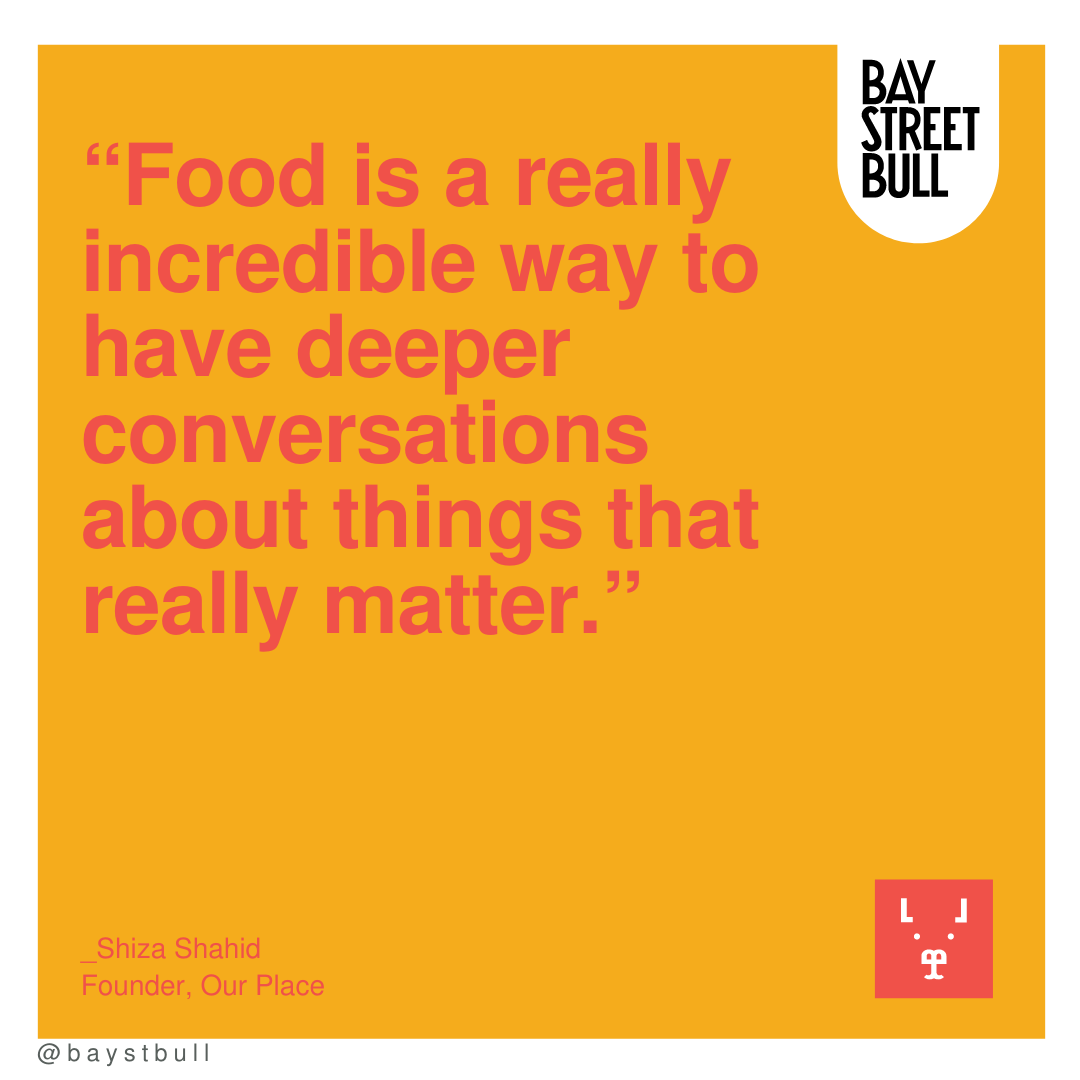

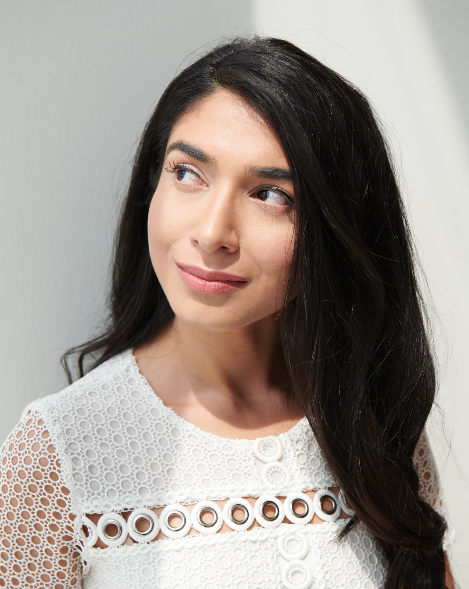

RELATED: Inside Media Icon Tina Brown’s Indomitable Crusade to Champion Women Around the World
Our Place launched in September of 2019 and became profitable the following April with consistent growth. Why do you think a company like Our Place has resonated so well during pandemic times?
We saw incredible growth and the moment that we launched, people loved the product. I think it was the first true innovation in cookware for a long time. Everyone else was selling fry pans and saute pans, and this was something that was different and simplified home cooking. It reduced clutter and was really beautiful and distinctive. It just made it easier to cook at home. I think people are falling back in love with home cooking. I think this is something that began before the pandemic and was perhaps expedited by the pandemic. The pandemic has been heartbreaking but if there are any silver linings, perhaps one of them is that people are falling back in love with cooking at home and this idea that they can make something with their hands, nourish themselves, nourish the people they love, and can use that as a way to connect with their food systems or farmers, their culture, their identity, and their families. Personally, my parents are 7,000 miles away and I don’t know when I’ll see them again, but I can call up my mom and ask her to teach me a recipe over FaceTime. At the end of that, I’ll take a bite and feel like I’m home with her.
How much value do you place on representation as a brand?
I think from a representation perspective, people are really excited. A lot of this again comes from my own experience. I know that if a kitchen brand ever did a Pakistani collection, it would mean so much to me because every other brand is just trying to speak to the “majority” and doesn’t realize what it feels like when your culture has never been positively represented. Representation is really important to us because of our own experience of not having been represented. We know what that feels like, and we know how important it is. We are a brand that’s all about gathering and celebrating together. When we had to learn what that meant when you could no longer gather, we had to scrap collections because we felt that the stories of those traditions would be lost. The only thing on people’s minds was the virus. We didn’t want to tell a story if it didn’t have the space to be told in the right way.
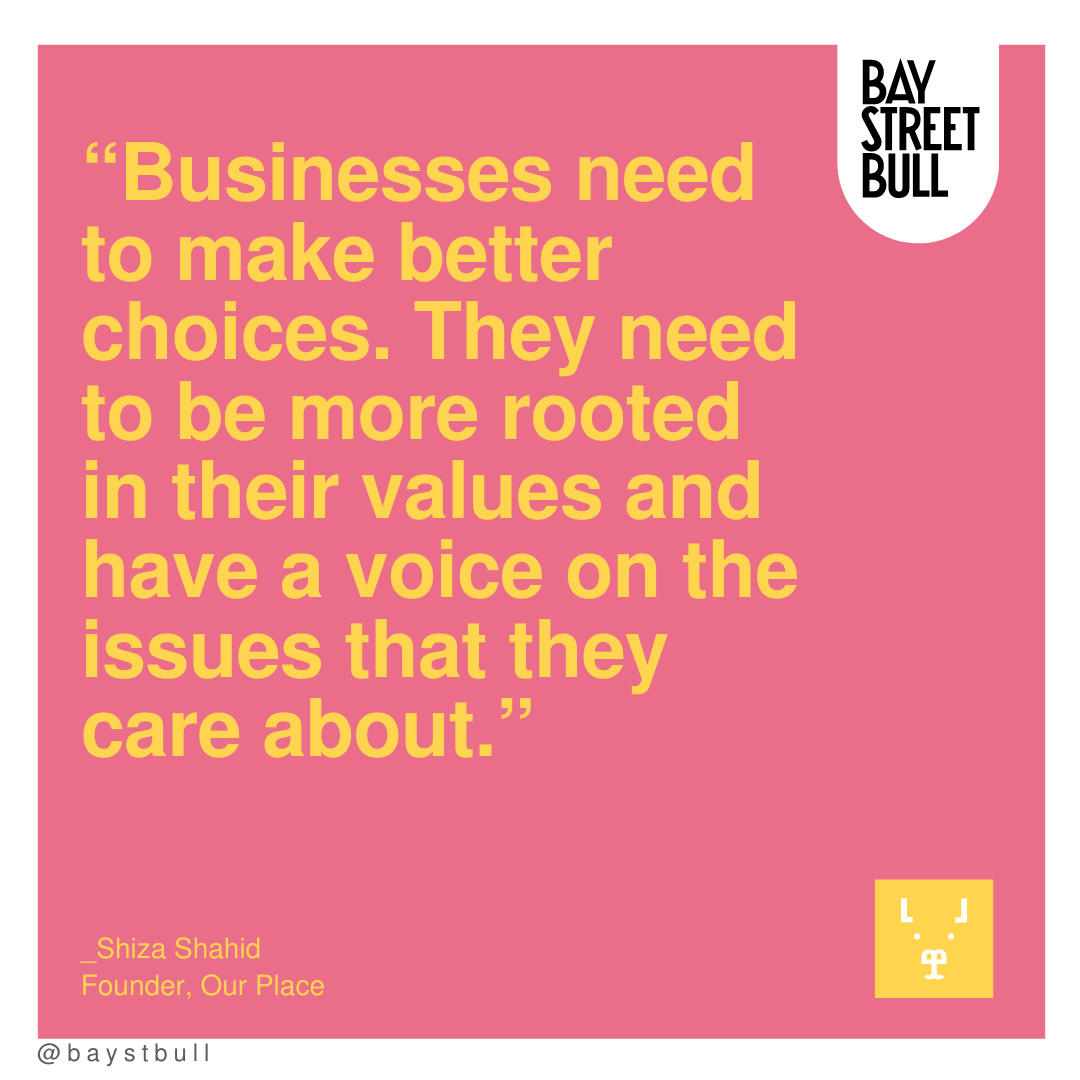

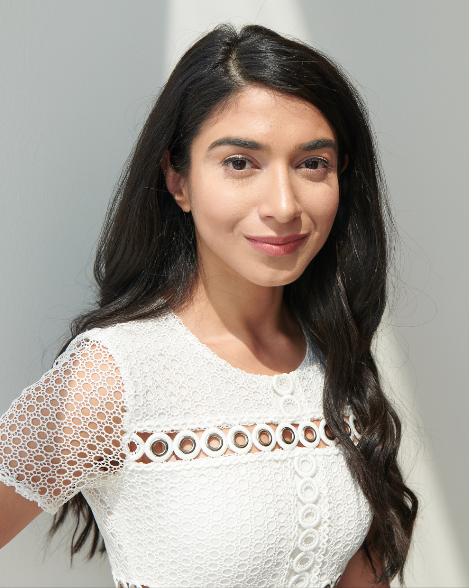

As a brand, are you politically active?
All across America in battleground States, we took out billboards [for our campaign]. It is a breathtaking family portrait of our American family. There are people from all walks of life, immigrants, people of different faiths, people of different ethnicities. I’m in the portrait myself and the words read: America is our place and the call to action is to vote. And if you follow that billboard, it takes you to our site where you can register to vote, check your registration status, and make a plan. You can hear from the people in the portrait, myself included, about what is at stake in this election. Not just for Americans, but for the world because, as we all know, America has an outsized influence on the world. There is so much that’s at stake based on the outcome of this election. We’re choosing to speak up. A lot of people are like, Oh, that’s a political stance for a business. Should a business be doing that? My perspective is we’re speaking up and we’re telling you what we stand for. The businesses that aren’t speaking up are also telling you what they stand for. There’s no such thing as neutrality in an unequal world. If you’re silent, you’re on the side of the oppressor. So those are the kinds of choices that we’re making. It’s not always easy, but it is something that we’re committed to.
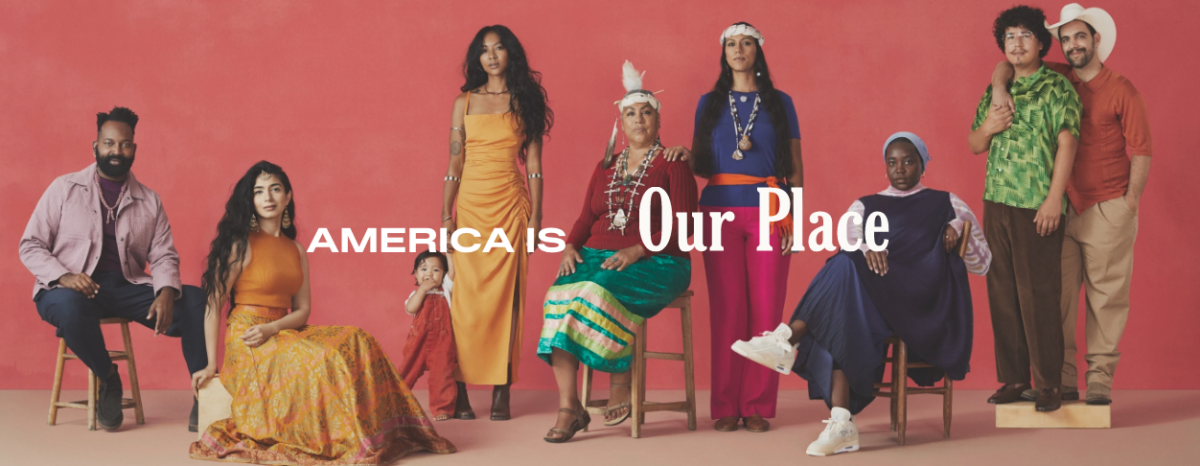

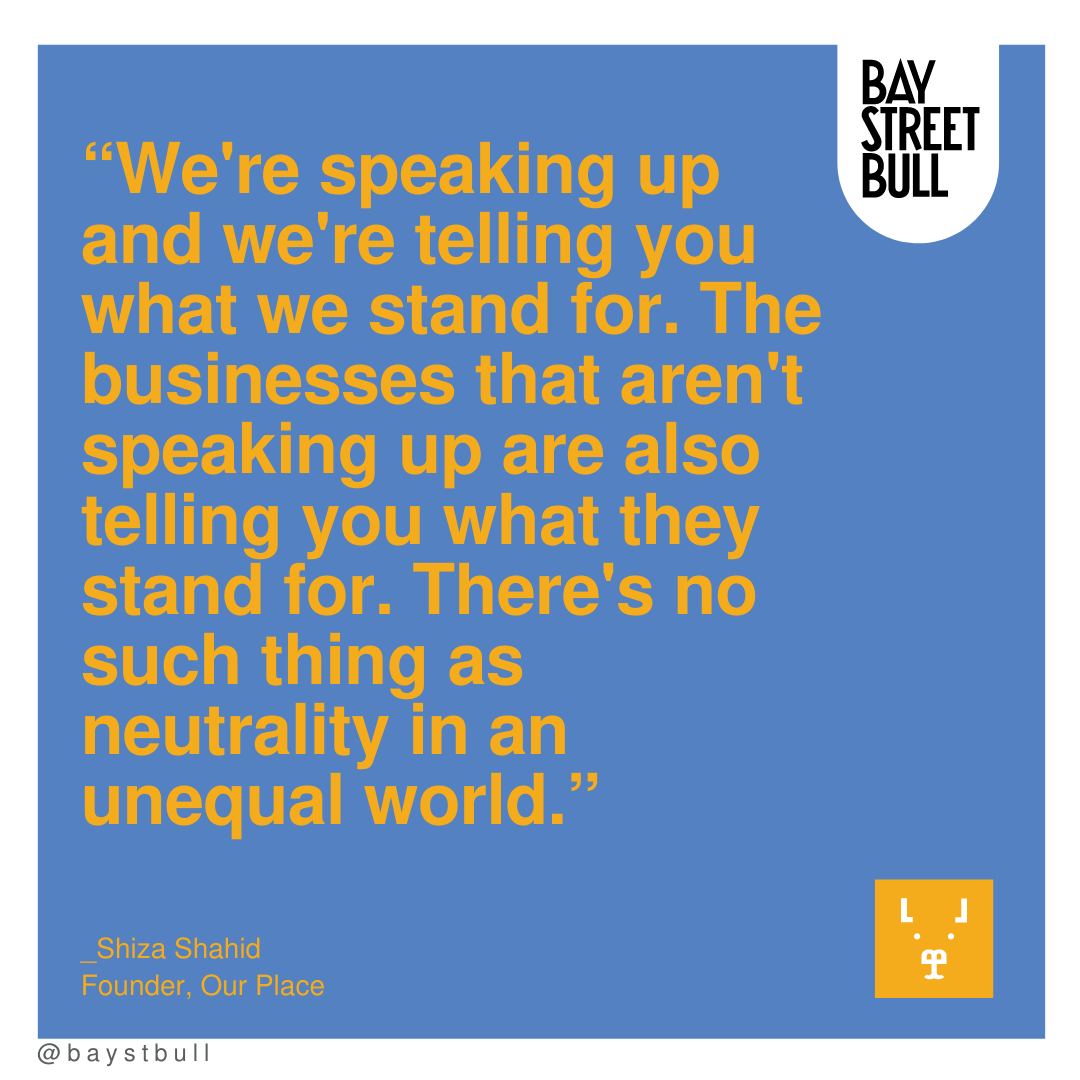

You are the co-founder of the Malala Fund and also NOW Ventures. How have those two business journeys helped you evolve to where you are today?
I grew up working a lot in women’s rights and girls’ education. A lot of my experience comes from grassroots work from non-profit work but my other formative experiences were going to Stanford, being surrounded by tech and startups, and working at McKinsey. So I have deep roots in the impact world. I believe wholeheartedly in the importance of nonprofits, but I have felt for a long time that until we get businesses to step up and play their part, we’re not going to solve the world’s most pressing challenges. Trillions are traded in the financial markets every day. Nonprofits are a fraction of that. Businesses need to make better choices. They need to be more rooted in their values and have a voice on the issues that they care about. Our Place is my way of trying to do that. We’re not perfect but we try and make better choices in all that we do. It’s not something we lead with. If you go to our website, we want you to buy our product because you love our product, not because we call ourselves a mission-driven business. But we went carbon neutral as a business this year (our first year in business) and we currently source over 80 percent of our products at women-owned factories and collectives. We use recycled materials in our packaging and products, and we place strict standards around how we source and working conditions. We also work with artisans to help them get access to US markets and have shared their contacts with other businesses to help boost their livelihoods, and donated organizations working on food, racial, and criminal justice reform and immigration rights. We’re trying to do the right things as a business so that as we grow, we’re fundamentally having a better impact on the world.
I’ve invested in mission-driven businesses, but it’s a very different thing when you’re making those decisions yourself. We want to prove that you can build a business that is wildly successful, is profitable, and has incredible growth. I think we are the fastest growing kitchenware business, but also amongst the fastest growing businesses, period. To be able to marry that kind of ambition with impact, I think that is really important because we’ve always been told that you can build a small social enterprise, or you can build a big business. We’re trying to prove that that is not true and that we can do business and be ambitious in better ways.
RELATED: How the Equality Fund is Redefining Philanthropy by Empowering Women
What advice do you have for someone who wants to build a business that is socially conscious?
One, you actually need a good business. A lot of people will say that they want to solve an issue and here’s a business that can do that. That’s amazing but to me, that is a social enterprise. We need more of them, and we need more funding for them. Then, there is a business with a strong social mission, and for that, you need a great business. People buy our product because they love our product. Some people know about our mission, but a lot of people don’t; they just love the product and our brand. We don’t use our mission in our marketing per se. We just do it because it’s the right thing to do.
If you want to build a culturally-rooted brand and you are not an immigrant, or from a diaspora, or a person of color, you need to hire people in senior roles, partner with them, or give them leadership roles in those campaigns. I think knowing the limits of your own understanding is really important. We try our best to learn on our own and not make mistakes, but we’re taught every day by our customers.
It’s about a willingness to learn, to be wrong, and to know that you’re not perfect. It’s the ability to just do the right thing and not always lead with your marketing. If you ask people to buy your product because you are the most sustainable product in the world, and you lead with that, of course people are going to challenge you on that. You may be better than 99 percent of your competitors, but you’re still not perfect. You’re producing something and there’s a cost to that. There always is. Lead with your products, lead with your business model, with your services—and make sure those are excellent. Don’t expect that because you are a carbon neutral business, or something else, that people are going to give you a pass on having the core functions of your business be as good or better than your competitors.


